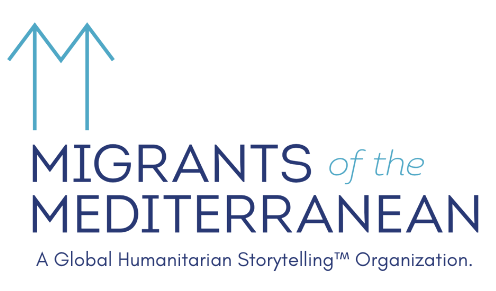MotM Update | Out Of The Past
In Agrigento, Sicily. February 2019. © Pamela Kerpius
14 March 2019
MotM Update
Out Of The Past
Ebrima, 18 years old and from The Gambia, walked up the street and out of the past.
We were in central Agrigento, Sicily, the province that encompasses also the Lampedusa-Linosa pelagic chain. I had not seen him since we met by happenstance at tiny Cala Palme beach in Lampedusa on 3 April 2017. It was 13 days after his rescue at sea. I waved hello from across the stretch of sand that was abandoned in the off season stillness.
Three young Africans waved back. We closed the gap among us smiling and staggered to the shoreline at the cove. Its tiny port there, porto vecchio, the “old port” that does nothing else in winter (any season besides summer in Lampedusa is winter) other than collect plastic water bottles and bits of fishing net in a crooked line drawn by the lapping waves. The smooth slope led to the disheveled sand strewn with overturned fishing boats and a few date palms that were always shedding but never manicured.
Lamin (Gambia), the eldest among them by about ten years, spelled my name in the sand, P-A-M-E-L-A, to better remember it. Musa (Gambia), just 17, was shy. Ebrima, 16 at the time, had a bit of a spark. He laughed fast when I cracked wise at the hand gestures they were throwing for the camera. All of them even then were not keen to fall into the iconography of the rescued and swaddled. They were trying to show themselves in a light that at that moment still painted them as figures to be pitied.
Ebrima and I planned to meet the following day for an interview to record his journey story. I went to the meeting place at the designated time, but it was a no-show. It happens a lot. It’s never personal, always only logistical.
Later, I found out from a few of his friends who still remained in the Lampedusa hotspot that he was transferred early that morning from the island to the mainland. I had already given him my contact information, so as soon as Ebrima had a mobile phone connection he found me. We promised to meet again, eventually anyway.
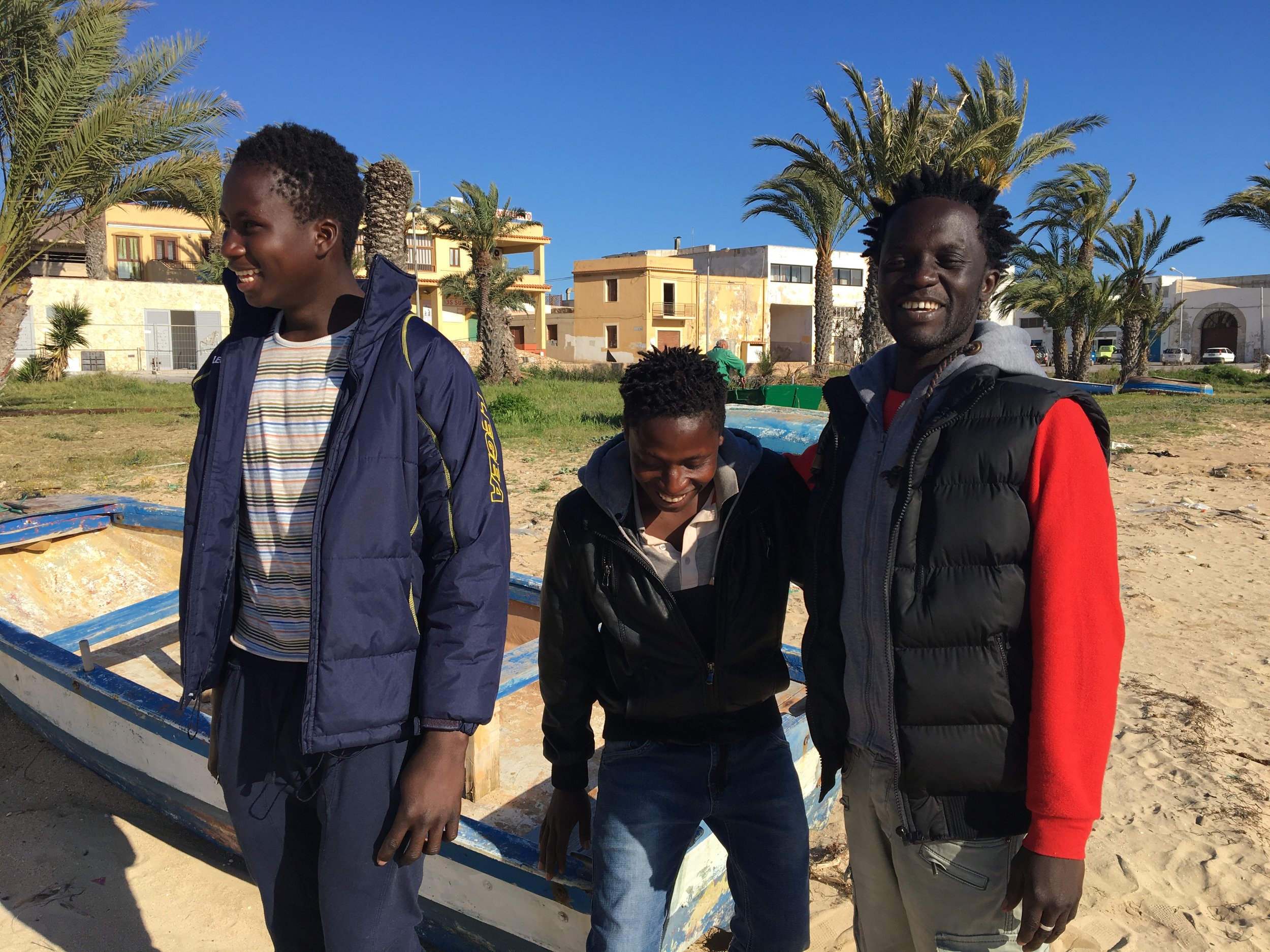
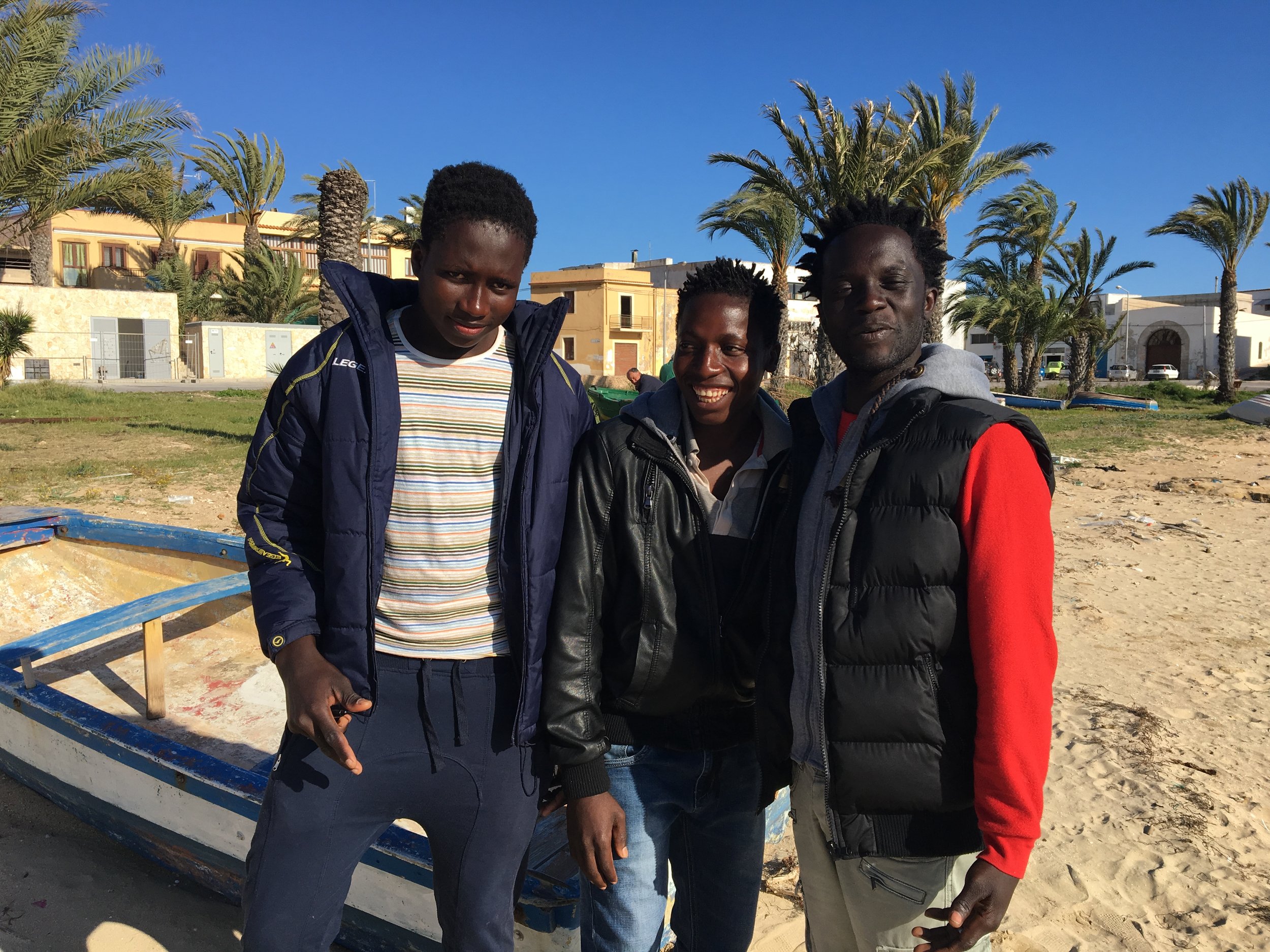
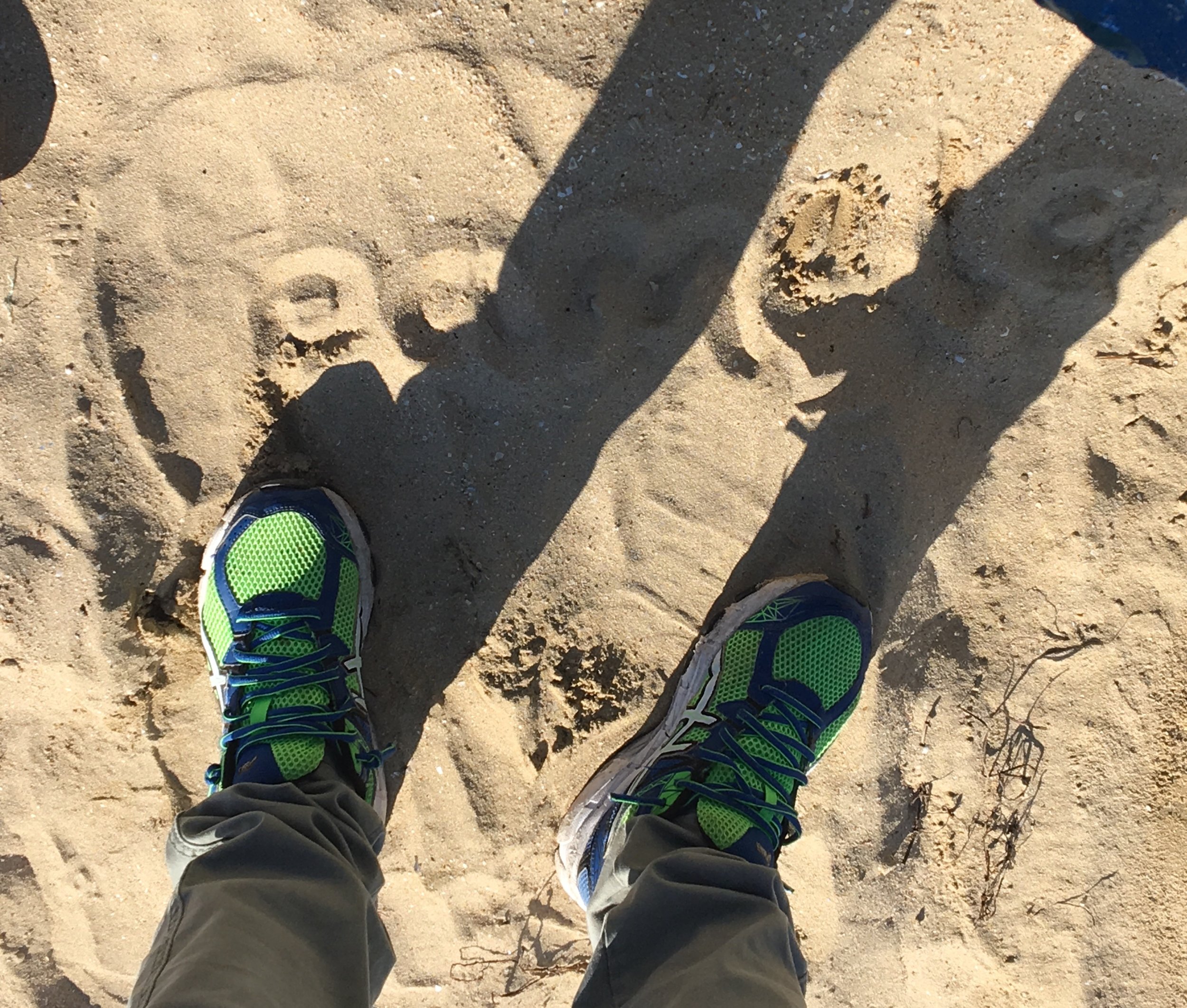
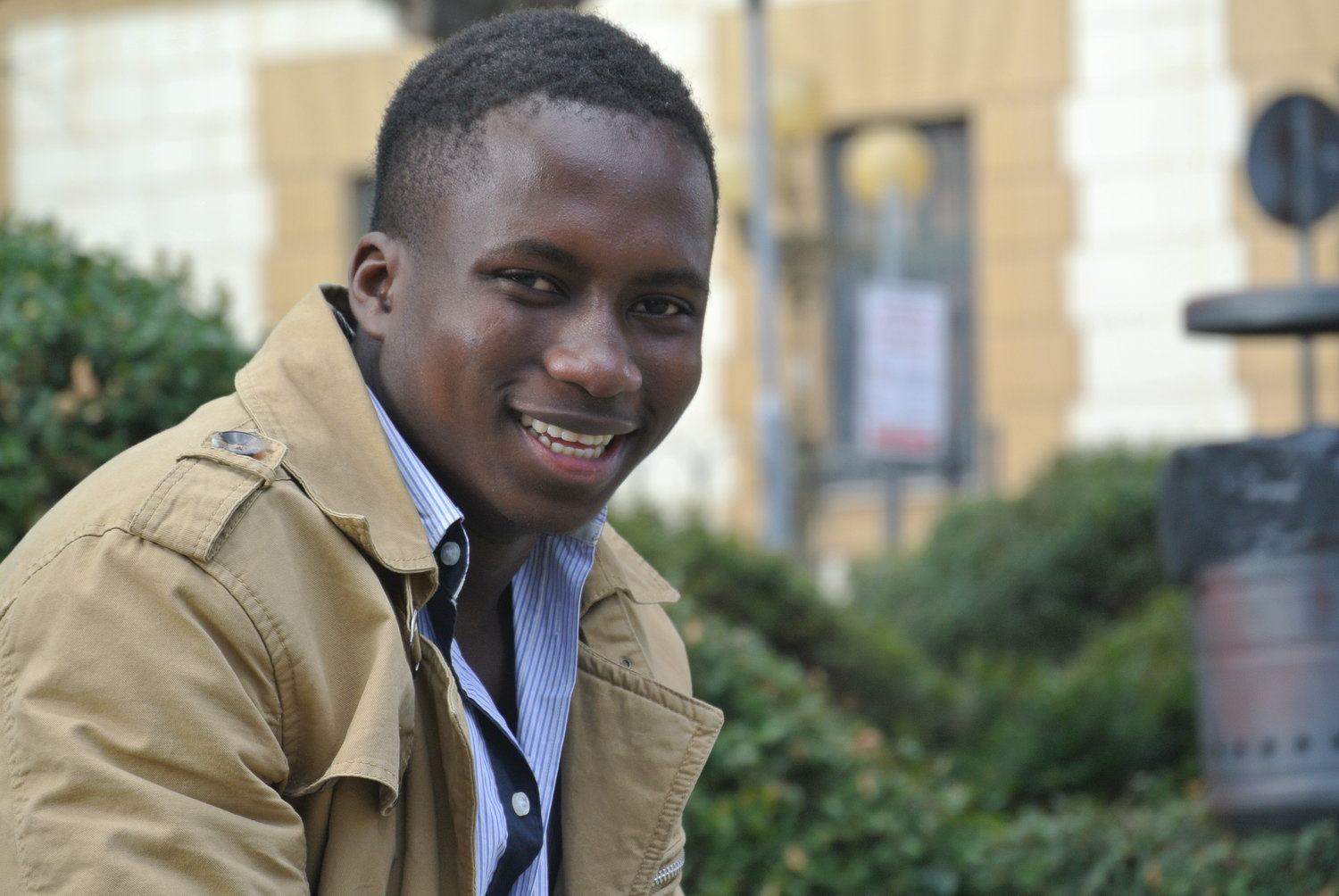
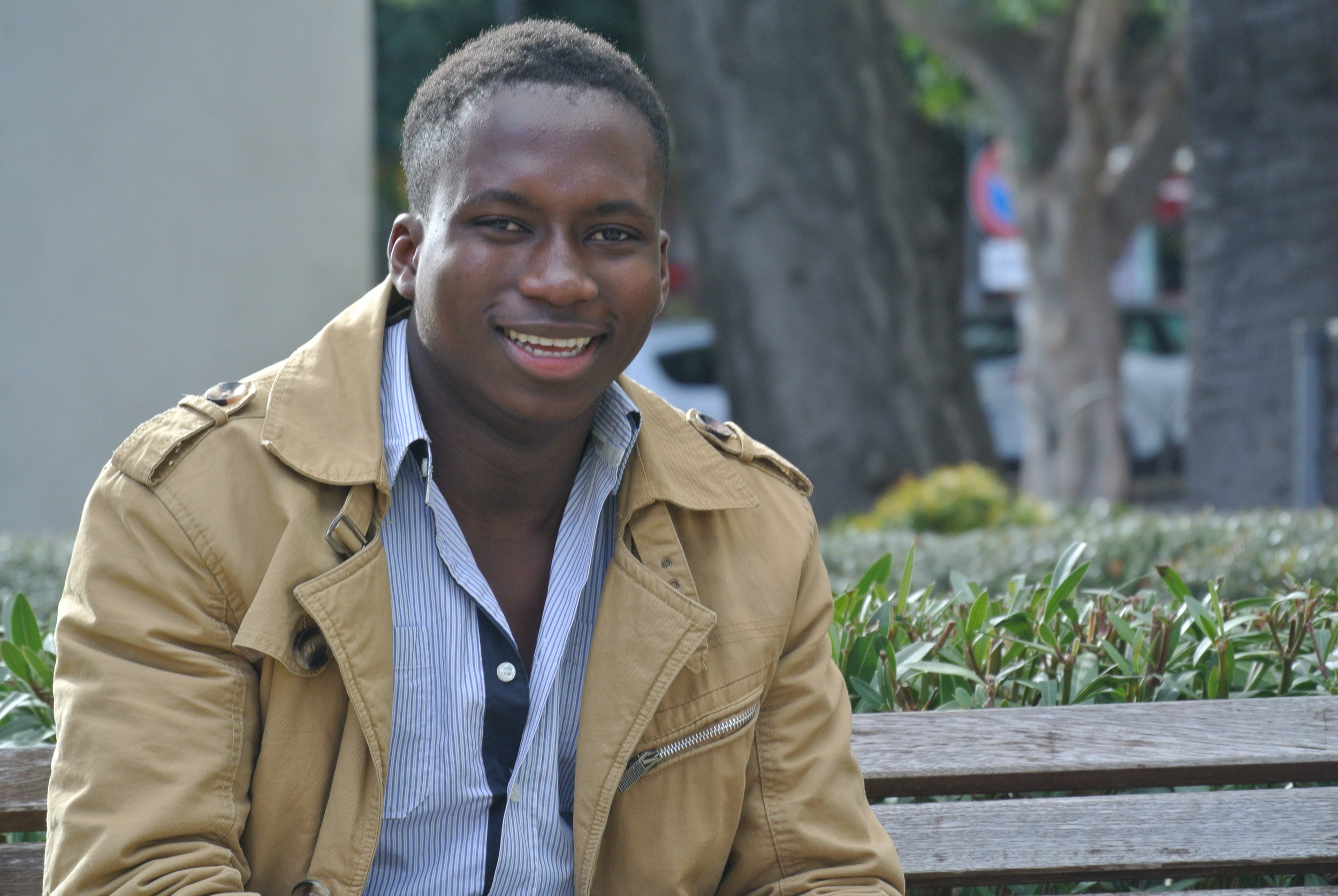
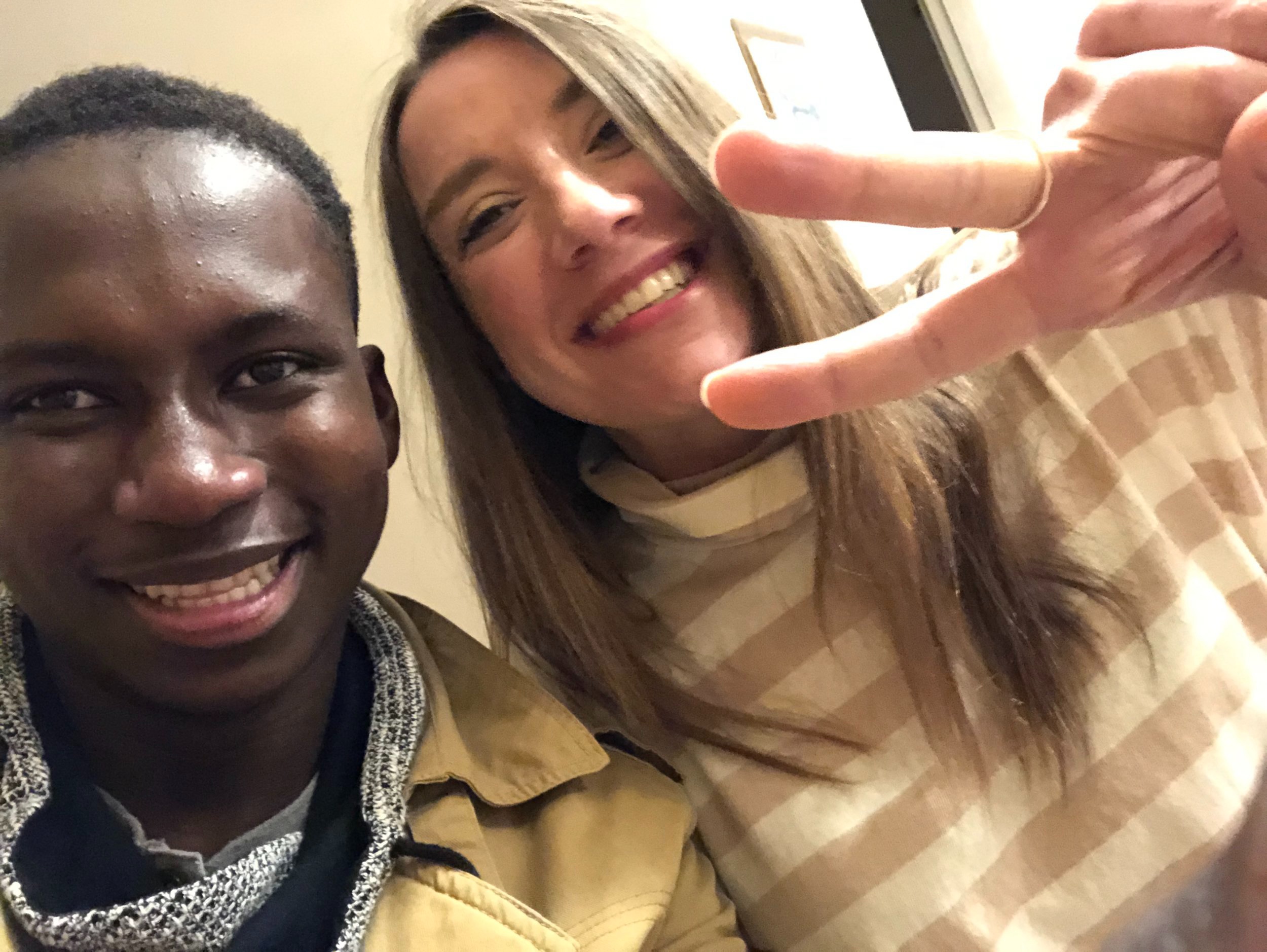
Over the next almost two full years we wrote and spoke on WhatsApp, where he told me about how he was living, surviving really. He’s Muslim, but would receive meals of hot dogs and meat that he cannot eat. Damp pasta came later in lieu, sealed in plastic packages. But those were remote details. We still had not met in person to capture the first steps of his journey that brought him here.
At one point I proposed a phone interview, but it never materialized. Being on the ground now it’s easy to see why: I have to look into someone’s eyes to hear them. Ebrima wanted to be seen as much as I wanted to hear his story by being there in-person to record it directly.
Last month, I flew to Palermo then took a bus across the southwestern corner of Sicily to Agrigento. I met him outside the train station. I was looking for the 16 year old kid in standard issue sweats and a puffy jacket I had known before––the kind of stuff people are always wearing after they’ve been received on Lampedusa. I was looking for that swaddled, still-victimized person even as I knew that was not who he would be. I only had the last picture of him to go from. I was imagining a frame of him that had no link to reality.
He emerged around the corner in a veritable strut. Collar popped and smiling back at me again, closing the gap between us, this time on two years.
There is much more to come on Ebrima, including audio conversations. I can’t wait for you to get to know this wonderfully kind, smart and good-humored person. He is simply great––he really is an amazing human being! But to start, please find Ebrima’s journey story here, as recorded on 12 February 2019.
